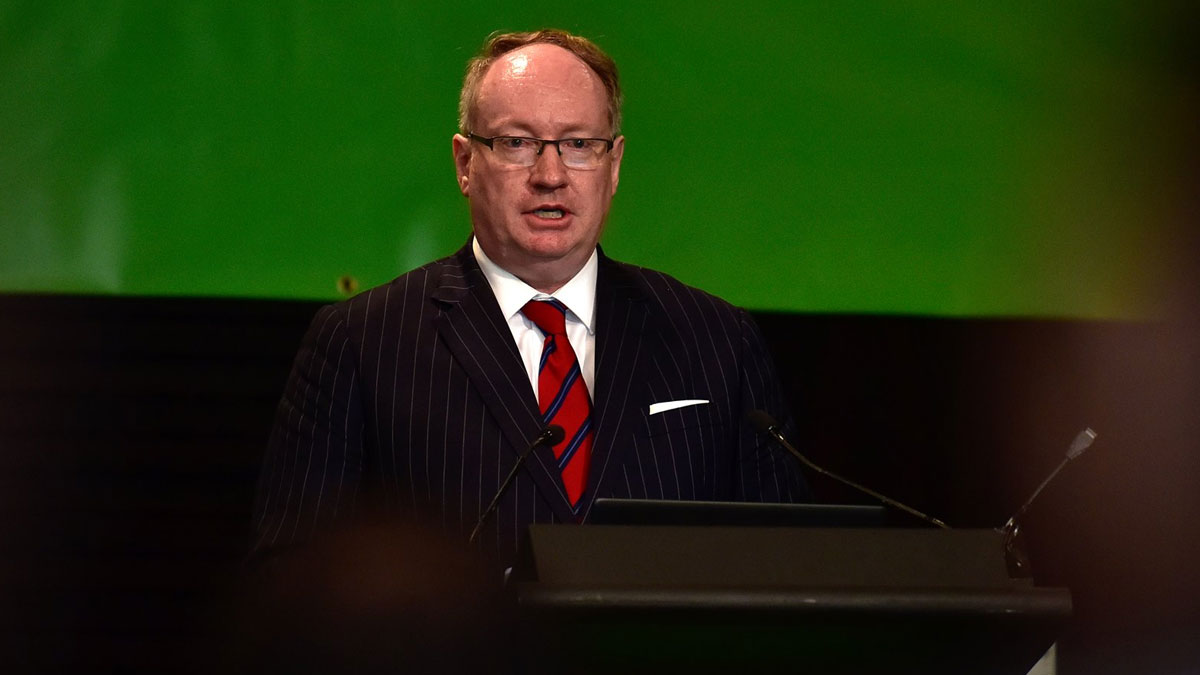
It can be difficult for Harriet O'Shea Carre not to feel completely overwhelmed whenever she thinks about climate change.
Which is something of a challenge, given the 18-year-old student has devoted much of her life to fighting for the future of our world.
Ms O'Shea Carre's environmental activism has taken her from regional school climate strikes all the way to the United Nations.
But her global experience does not make tackling worldly issues feel any smaller.
"It's scary — as an individual, just feeling like there's not that much that you can do, just as one person," she said.
"It can definitely make me very anxious and is often quite distracting."
And she's far from alone in feeling that way.
A new study by Mission Australia and Orygen, conducted with the University of Melbourne, found that one in four Australians aged 15 to 19 were "very or extremely concerned" about climate change.
Nearly two in five of those people also experienced high psychological distress.
Caroline Gao, the report's co-author, said the impact of climate change on mental health was an emerging but significant issue that was "likely to grow" as climate change became more severe.
"With the extreme climate occurrences that have occurred in Australia over the last three years, it is likely that climate concerns are contributing to the exacerbation of mental ill health for some of our young people."
Coping with stress
The report was authored by Christian charity Mission Australia and youth organisation Orygen, and co-authored by academics at the University of Melbourne.
It canvassed 18,800 people aged 15 to 19 and found that those concerned about climate change were more likely to have higher psychological distress, low wellbeing and rate their mental health as "poor or fair".
Twenty-four-year-old management consultant Mariah Amjad said the problem was not only felt by school-aged students.
"Because it touches almost every facet of life, climate change can feel really overwhelming, and it makes the future seem bleak," Ms Amjad said.
"The hopelessness that young people feel is very real."
Whose role is it, anyway? Like Harriet O'Shea Carre, Eli Davern turned to activism as part of his reaction to climate change concerns.
The 19-year-old's first ballot cast in a voting box was for himself, when he ran for the Greens in the state and federal elections in New South Wales earlier this year.
But pushing for change does not make him immune from feeling overwhelmed by the task at hand.
"I'm a bit of an optimist by nature. But I think, like many young people, the optimism is starting to fade away because we are running out of time," he said.
"And for some young people, I suppose, there is a fear of the damage that's been done being completely irreversible."
Mission Australia wants all levels of government to take notice of the impact climate change is having on young people's wellbeing.
Mission Australia's Marion Bennett said the evidence was clear that the threat of climate change and the increasing regularity and severity of extreme weather events were harming young people's mental health.
"Young people overwhelmingly want action on climate change, and Australia must act to reduce the harm young people are experiencing," she said.
The report's authors made a number of recommendations, suggesting that future government strategies included actions that addressed the relationship between climate change and mental health.
They also noted that while concerns about climate change could contribute to a young person's psychological distress, it was also possible that pre-existing distress increased the likelihood of worry and concerns, including about climate change.
Federal Climate Minister Chris Bowen has been contacted for comment.
Story by Daniel Miles
Original story link here https://www.abc.net.au/news/2023-04-20/climate-change-impacts-young-peoples-mental-health-survey-finds/102240226
Stay tuned for the latest news on our radio stations


